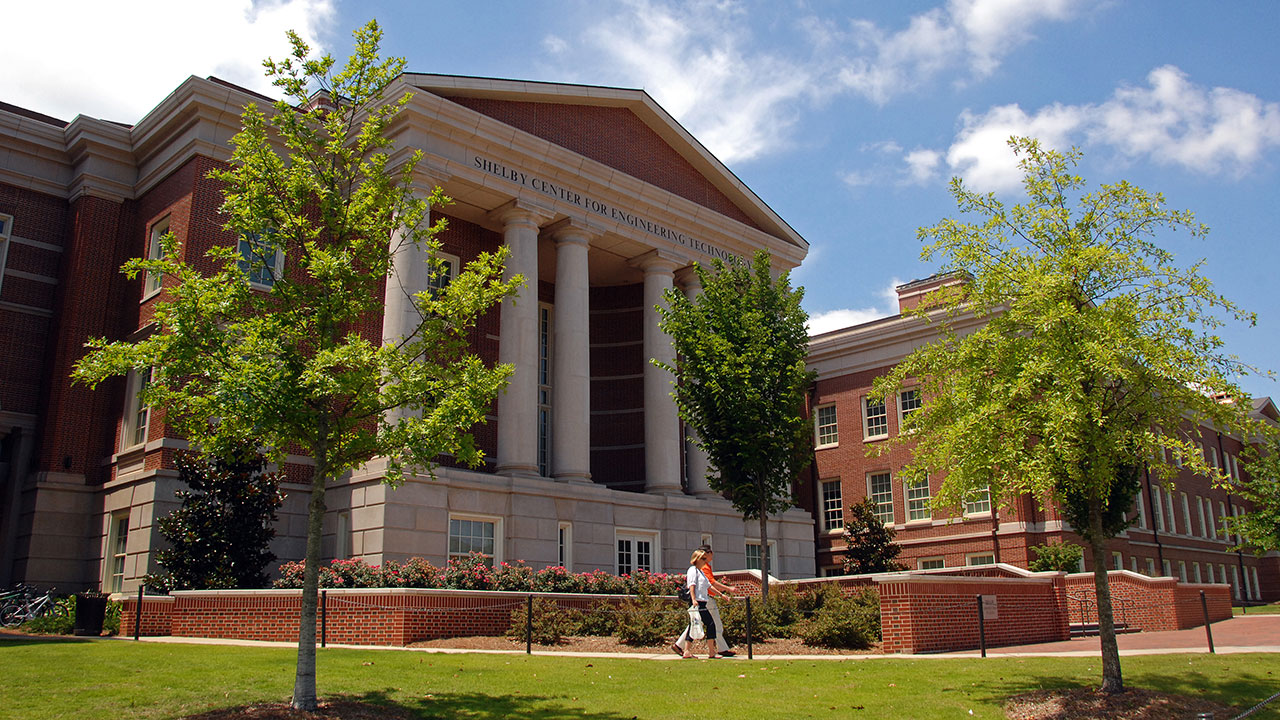Auburn Engineering becomes key player in two Air Force Research Laboratory programs
Published: Dec 14, 2021 4:15 PM
By Joe McAdory
Auburn University is among 10 universities chosen to participate in the Air Force Research Laboratory’s (AFRL) University Nanosatellite Program, a two-year partnership to design, fabricate and test small satellites.
In addition, Auburn was also selected to participate in the AFRL’s prestigious Information Institute, an education partnership where it joins dozens of other science, technology, engineering and mathematics (STEM) -- related institutions for collaborative research opportunities.
“An important part of our mission as a land grant university is to conduct research that advances our knowledge of science and engineering and ultimately leads to the development of new technology and technology solutions,” said Steve Taylor, associate dean for research at the Samuel Ginn College of Engineering. “We understand that Auburn engineering has an opportunity to play a key role in this relationship with the Air Force Research Laboratory, whether it’s helping to create new technology for small satellites or collaborating with peer scholars nationwide to produce research that makes an impact on American industry.”
Established in 1999 and managed through the Air Force Research Laboratory’s Space Vehicles Directorate, the University Nanosatellite Program’s objective is to promote and sustain university research and education focused on small satellite and related technologies.
Auburn Engineering is among institutions exploring advanced technologies within what AFRL deems, “satellite form factor.” This includes novel experiments in communications/networking, formation flying, and space domain awareness.
The Information Institute consists of universities allied with the U.S. Air Force Research Laboratory Information Directorate in Rome, New York. The Information Institute is focused on research and advanced development in command, control, communications, computers and intelligence, and cyber technology. Its diverse workforce of more than 800 military and civilian scientists and engineers, and university partners, is charged with leading the discovery, development, and integration of affordable warfighting information technology capabilities for our air, space and cyberspace force.
Participation provides researchers, faculty or students, with a formal vehicle to work collaboratively on specific AFRL programs with peer scholars from other institutions, access to state-of-the-art information technologies for research, and special access to computing equipment and databases dedicated to technology transfer.
“Collaboration with the Institute and with researchers at other universities creates a friction-free environment where we conduct research as a team, which ultimately produces stronger, more productive research for the betterment of all,” said Ujjwal Guin, assistant professor in electrical and computer engineering.
Participation within the AFRL’s directorates expands Auburn’s research portfolio, connects Auburn researchers with peers working on similar projects, and showcases Auburn Engineering as a leader in research nationwide.
Media Contact: , jem0040@auburn.edu, 334.844.3447
Auburn University's Samuel Ginn College of Engineering is one of the nation's top 50 institutions in research expenditures.

